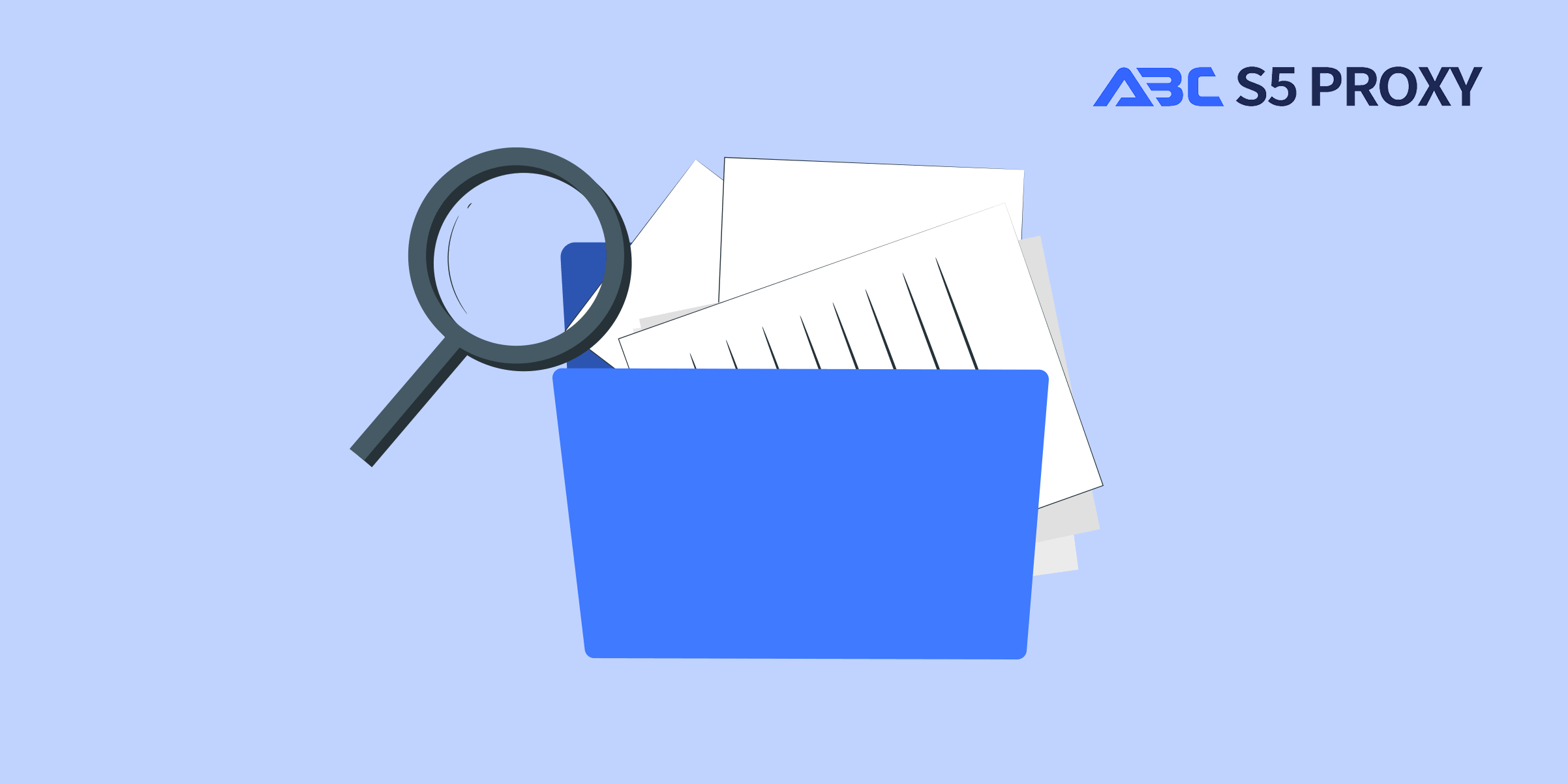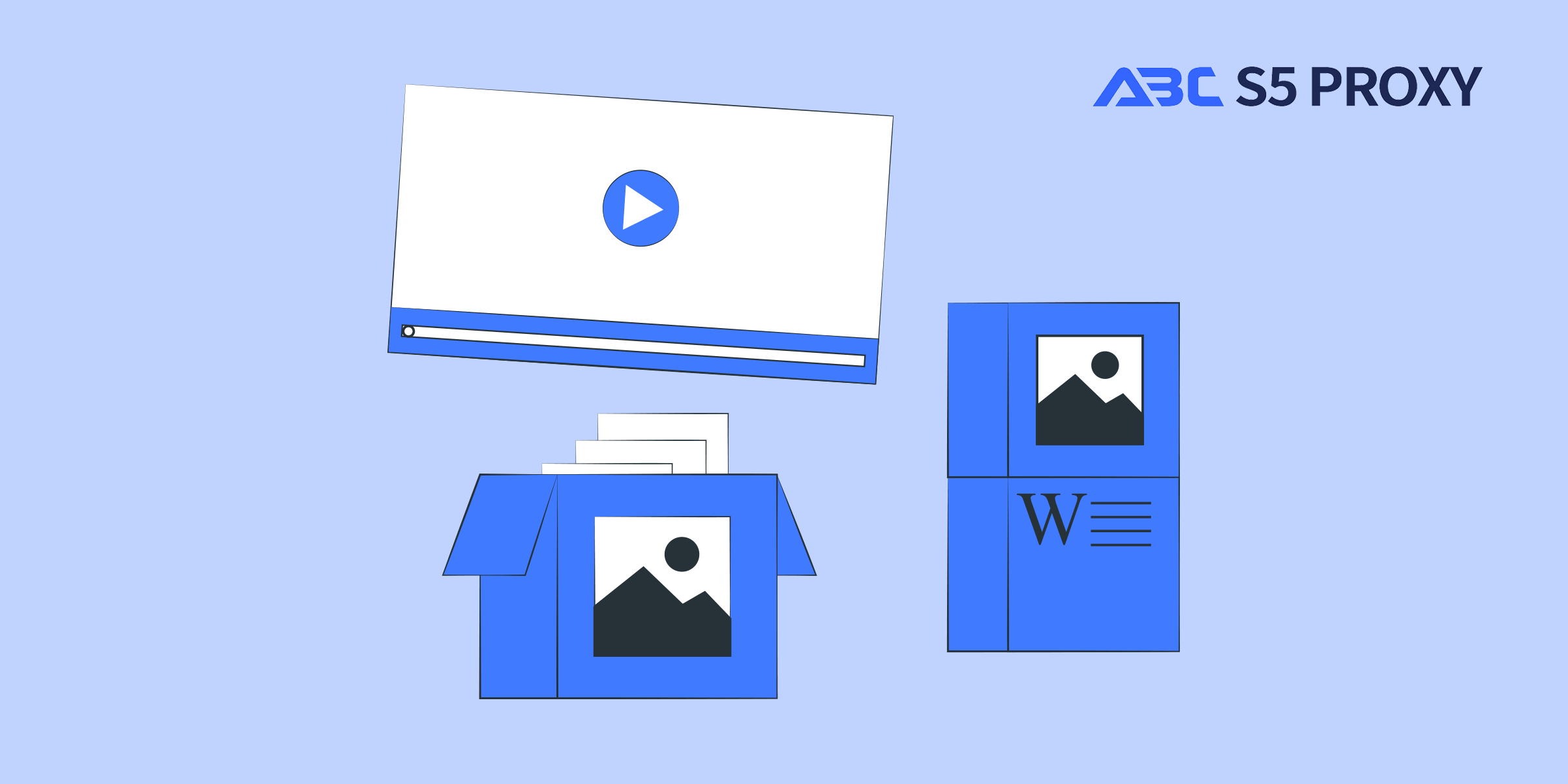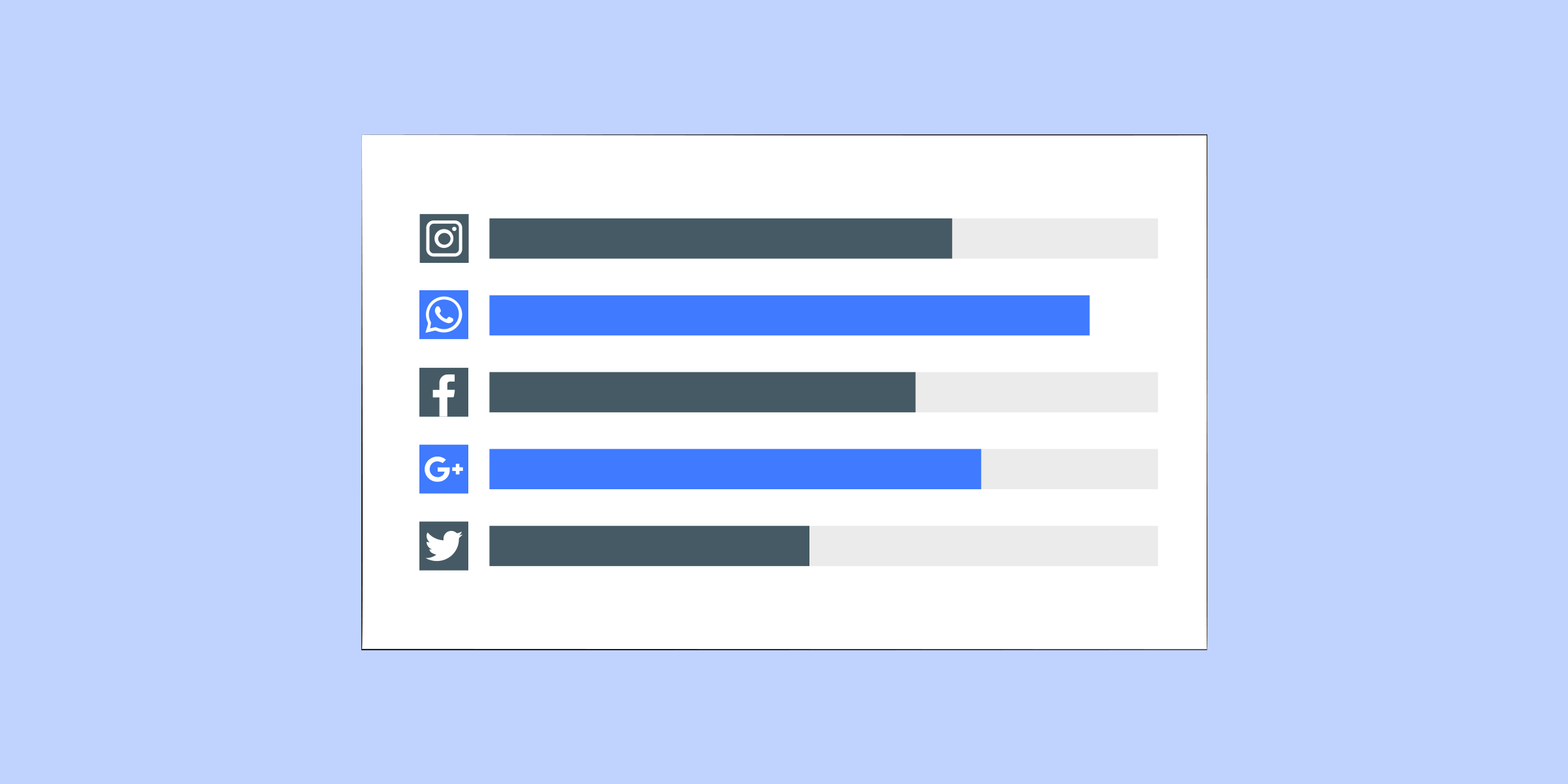Residential Proxies
Allowlisted 200M+ IPs from real ISP. Managed/obtained proxies via dashboard.

Proxies
Residential Proxies
Allowlisted 200M+ IPs from real ISP. Managed/obtained proxies via dashboard.
Residential (Socks5) Proxies
Over 200 million real IPs in 190+ locations,
Unlimited Residential Proxies
Use stable, fast, and furious 700K+ datacenter IPs worldwide.
Static Residential proxies
Long-lasting dedicated proxy, non-rotating residential proxy
Dedicated Datacenter Proxies
Use stable, fast, and furious 700K+ datacenter IPs worldwide.

Web Unblocker
View content as a real user with the help of ABC proxy's dynamic fingerprinting technology.
Proxies
API
Proxy list is generated through an API link and applied to compatible programs after whitelist IP authorization
User+Pass Auth
Create credential freely and use rotating proxies on any device or software without allowlisting IP
Proxy Manager
Manage all proxies using APM interface

Proxies
Residential Proxies
Allowlisted 200M+ IPs from real ISP. Managed/obtained proxies via dashboard.
Starts from
$0.77/ GB
Residential (Socks5) Proxies
Over 200 million real IPs in 190+ locations,
Starts from
$0.045/ IP
Unlimited Residential Proxies
Use stable, fast, and furious 700K+ datacenter IPs worldwide.
Starts from
$79/ Day
Rotating ISP Proxies
ABCProxy's Rotating ISP Proxies guarantee long session time.
Starts from
$0.77/ GB
Static Residential proxies
Long-lasting dedicated proxy, non-rotating residential proxy
Starts from
$5/MONTH
Dedicated Datacenter Proxies
Use stable, fast, and furious 700K+ datacenter IPs worldwide.
Starts from
$4.5/MONTH
Knowledge Base
English
繁體中文
Русский
Indonesia
Português
Español
بالعربية

Title: The Rise of Headless Browsers: Revolutionizing Web Development
In the realm of web development, one term that has been gaining significant traction in recent years is "headless browsers." So, what exactly are headless browsers and why are they revolutionizing the way websites and web applications are being created and tested?
To put it simply, a headless browser is a web browser without a graphical user interface. Unlike traditional browsers like Chrome or Firefox, which display web pages visually, headless browsers operate in the background, accessing and interacting with web pages programmatically. This means that developers can automate tasks, run tests, and gather data from websites without the need for a human to manually click around a website.
One of the key advantages of using headless browsers is their speed and efficiency. Since there is no graphical interface to render, headless browsers can perform tasks much faster than traditional browsers. This is especially beneficial for tasks like web scraping, automated testing, and performance monitoring, where speed is of the essence.
Another benefit of headless browsers is their ability to run in the background, making them ideal for server-side applications and continuous integration workflows. Developers can easily incorporate headless browsers into their build processes to automatically test website functionality and performance, ensuring that new code changes do not introduce any regressions.
Furthermore, headless browsers are platform-agnostic, meaning they can be run on any operating system or environment. This flexibility allows developers to test their websites across different browsers and devices, ensuring a consistent user experience for all visitors.
In addition to development and testing, headless browsers are also being used for web scraping and data extraction. By automating the process of gathering information from websites, businesses can easily collect data for market research, competitive analysis, and lead generation.
Despite their numerous benefits, headless browsers are not without their challenges. One common issue is handling JavaScript-heavy websites, as headless browsers may not fully support all JavaScript features. Additionally, managing browser configurations and dependencies can be cumbersome, especially when dealing with multiple browsers and versions.
To address these challenges, developers have created tools and libraries that simplify the usage of headless browsers. Popular options like Puppeteer, Playwright, and Selenium provide APIs for interacting with headless browsers, making it easier to automate tasks and write test scripts.
Overall, the rise of headless browsers is reshaping the landscape of web development. By providing developers with a fast, efficient, and flexible way to interact with websites, headless browsers are enabling the creation of more robust and reliable web applications. As technology continues to evolve, we can expect headless browsers to play an increasingly important role in the development process, driving innovation and efficiency in the ever-changing world of the web.
Featured Posts
Popular Products
Residential Proxies
Allowlisted 200M+ IPs from real ISP. Managed/obtained proxies via dashboard.
Residential (Socks5) Proxies
Over 200 million real IPs in 190+ locations,
Unlimited Residential Proxies
Use stable, fast, and furious 700K+ datacenter IPs worldwide.
Rotating ISP Proxies
ABCProxy's Rotating ISP Proxies guarantee long session time.
Residential (Socks5) Proxies
Long-lasting dedicated proxy, non-rotating residential proxy
Dedicated Datacenter Proxies
Use stable, fast, and furious 700K+ datacenter IPs worldwide.
Web Unblocker
View content as a real user with the help of ABC proxy's dynamic fingerprinting technology.
Related articles

Exploring the Power of Structured Data: Examples and Insights.
Title: Exploring Examples of Structured Data in the Digital AgeIn the age of information overload, structured data plays a vital role in organizing and making sense of the vast amounts of data available on the internet. Structured data refers to data that is organized in a predefined format, making it easily searchable and interpretable by machines.One common example of structured data is a relational database, where data is stored in tables with rows and columns. This format allows for efficient querying and analysis, making it ideal for managing large datasets in businesses and organizations.Another example of structured data is the use of markup languages like HTML or XML to format data in a standardized way. This allows search engines to better understand the content of web pages and display relevant information in search results.In the realm of e-commerce, structured data is used to create product catalogs that can be easily searched and filtered by customers. This ensures a seaml

Exploring the Power of Headless Browsers: Unleashing the Potential of Web Automation
Title: Exploring the Power of Headless Browsers in Web DevelopmentIn the world of web development, headless browsers have emerged as a powerful tool for automating and testing websites. A headless browser is a web browser without a graphical user interface, allowing developers to interact with web pages programmatically. This enables them to perform tasks such as web scraping, automated testing, and server-side rendering.One of the key advantages of using a headless browser is its ability to run in the background without requiring a visible window, making it faster and more efficient than traditional browsers. This allows developers to easily automate repetitive tasks and test their websites across different browsers and devices.Furthermore, headless browsers are highly versatile and can be integrated into various development workflows. They are particularly useful for testing web applications in a continuous integration environment, ensuring that changes made to the code do not break

Unveiling the Art of Scraping Amazon: Unlocking Hidden Insights and Opportunities
"Scraping Amazon: The Controversy around Web Data ExtractionIn the world of online retail, Amazon stands as a giant, dominating the e-commerce landscape with its vast product offerings and convenient services. However, behind the scenes, a controversial practice known as 'scraping Amazon' has emerged, stirring debate and legal battles.'Scraping Amazon' refers to the act of using web scraping tools to extract data from Amazon's website, such as product prices, reviews, and other information. This data can then be used for various purposes, such as monitoring competitors, analyzing market trends, or even creating price comparison websites.While web scraping itself is not illegal, scraping Amazon specifically has raised concerns due to the company's strict terms of service and privacy policies. Amazon has taken legal action against individuals and companies caught scraping their site, arguing that it violates their intellectual property rights and poses a threat to their business.Proponen